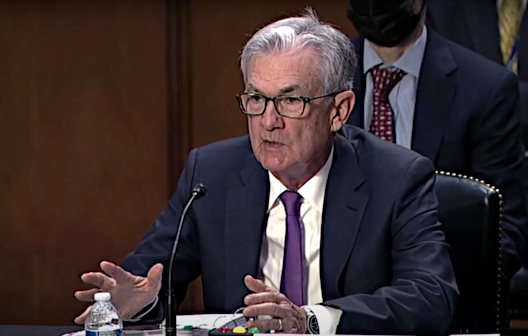Image Credit: Eric Steinhauer (Pexels)
The Federal Reserve Continues to Equivocate on Crypto
The Federal Reserve avoided taking a stance on whether the U.S. should establish a digital currency as legal tender in a report released Thursday (January 20). It appears to avoid taking a solid position on crypto in general. The long-awaited paper does, however provide insight into the agency’s thinking. It then stops short of expectations that the report may have established a timeline or roadmap for the U.S. to evolve its definition of money.
The 40-page paper that was promised to be delivered by late Summer 2021 begins with a discussion of existing forms of money, the current state of the U.S. payment system, and its relative strengths and challenges. It then provides information on the various digital assets that have emerged in recent years, including stablecoins and other cryptocurrencies. The paper then turns to central bank digital currencies (CBDC), focusing on its uses and functions; potential benefits and risks; and related policy considerations.
The Federal Reserve’s initial analysis suggests that a U.S. CBDC, if one were created,
would best serve the needs of the United States by being privacy-protected, intermediated, widely
transferable, and identity-verified. The paper expressly points out throughout that it is not intended to advance a specific policy outcome and takes no position on the ultimate desirability of a U.S. CBDC. The paper says its purpose is to foster conversation and public comment. “The paper is not intended to advance any specific policy outcome, nor is it intended to signal that the Federal Reserve will make any imminent decisions about the appropriateness of issuing a U.S. CBDC,” the report read.

Source: Money and Payments: The U.S. Dollar in the Age of Digital Transformation, Federal Reserve
The Board of Governors of the Federal Reserve also indicated that it would not proceed with the issuance of a CBDC without clear support from the executive branch and from Congress, ideally in the form of a specific law authorizing the use. “The introduction of a CBDC would represent a highly significant innovation in American money, and with it, a range of risks and benefits,” the Fed said.
The report solicits stakeholders to provide feedback by answering 22 questions beginning on page 25 of the document.
Some of the benefits of a CBDC that were noted in the paper include a safe and convenient form of central bank money as well as fast and inexpensive overseas payments.
As for the risks, the Fed views a central digital currency could create problems maintaining the stability of the financial system and the objectives of monetary policy.
For now, 87 countries are exploring their own CBDCs, and 14, including major economies like China and South Korea, are already in the pilot stage. Nine have already fully launched them. Earlier this month, Fed Chairman Powell spoke and apologized for the long delay in providing this report. He suggested other monetary challenges were being prioritized ahead of digital currencies causing the delay.
Managing Editor, Channelchek
Suggested Reading
 Powell’s Apparent Shift on Digital Currency
|
 Digital Currency Report from the Fed is Past Due
|
 The First Cryptocurrency Exchange Hacked in 2022
|
 Walmart’s Metaverse, NFT, and Crypto Plans
|
Sources
https://www.federalreserve.gov/publications/files/money-and-payments-20220120.pdf
Stay up to date. Follow us:

|
